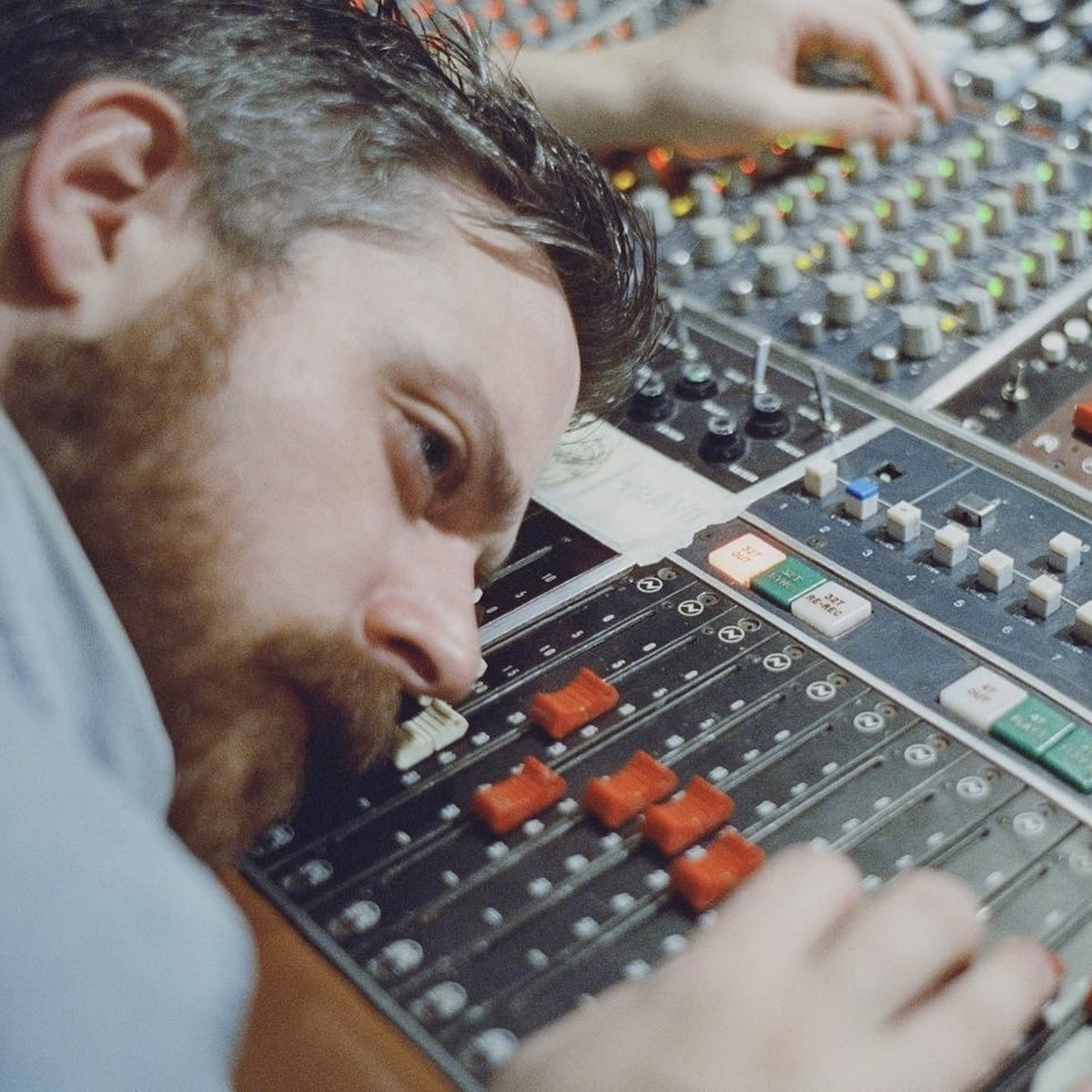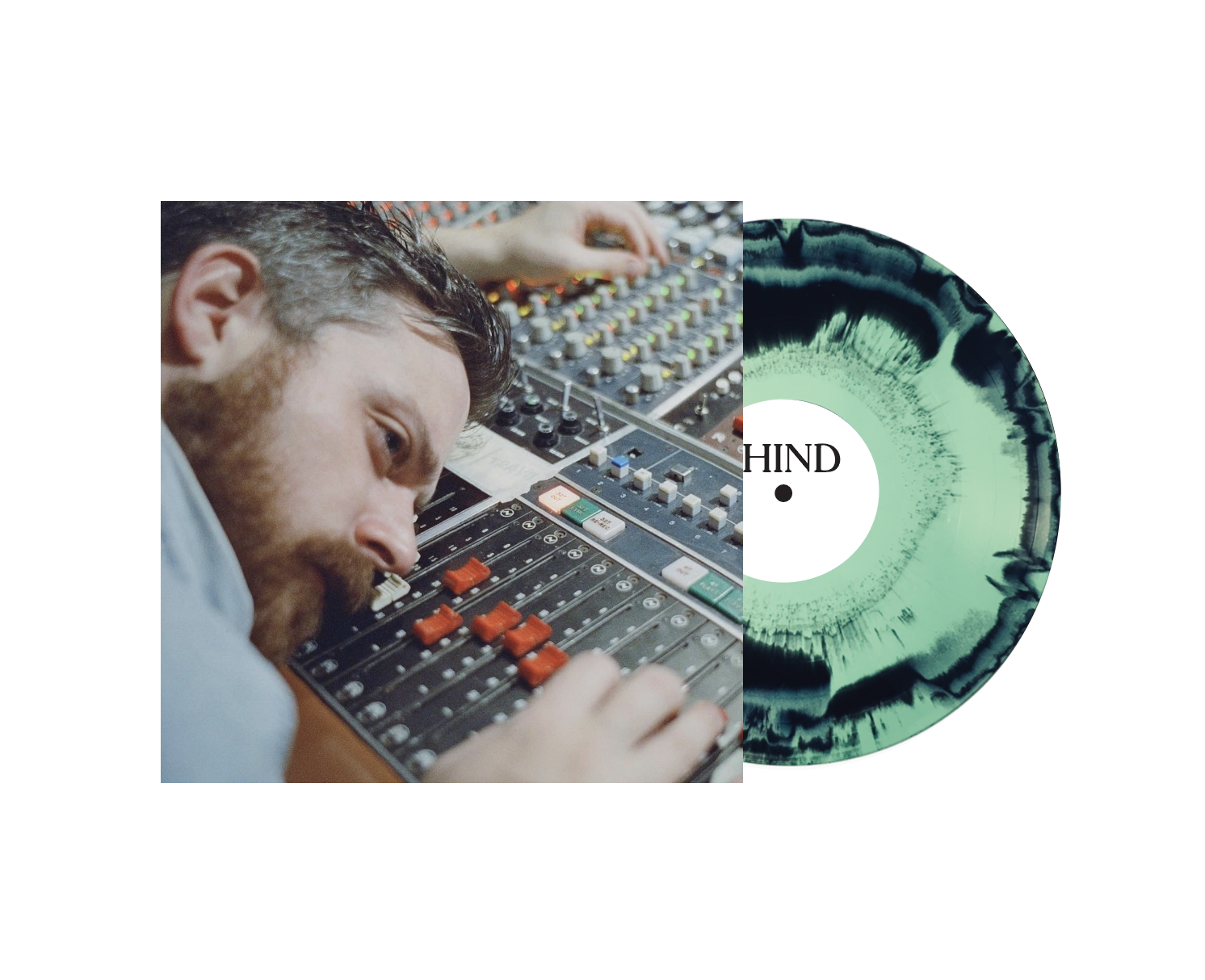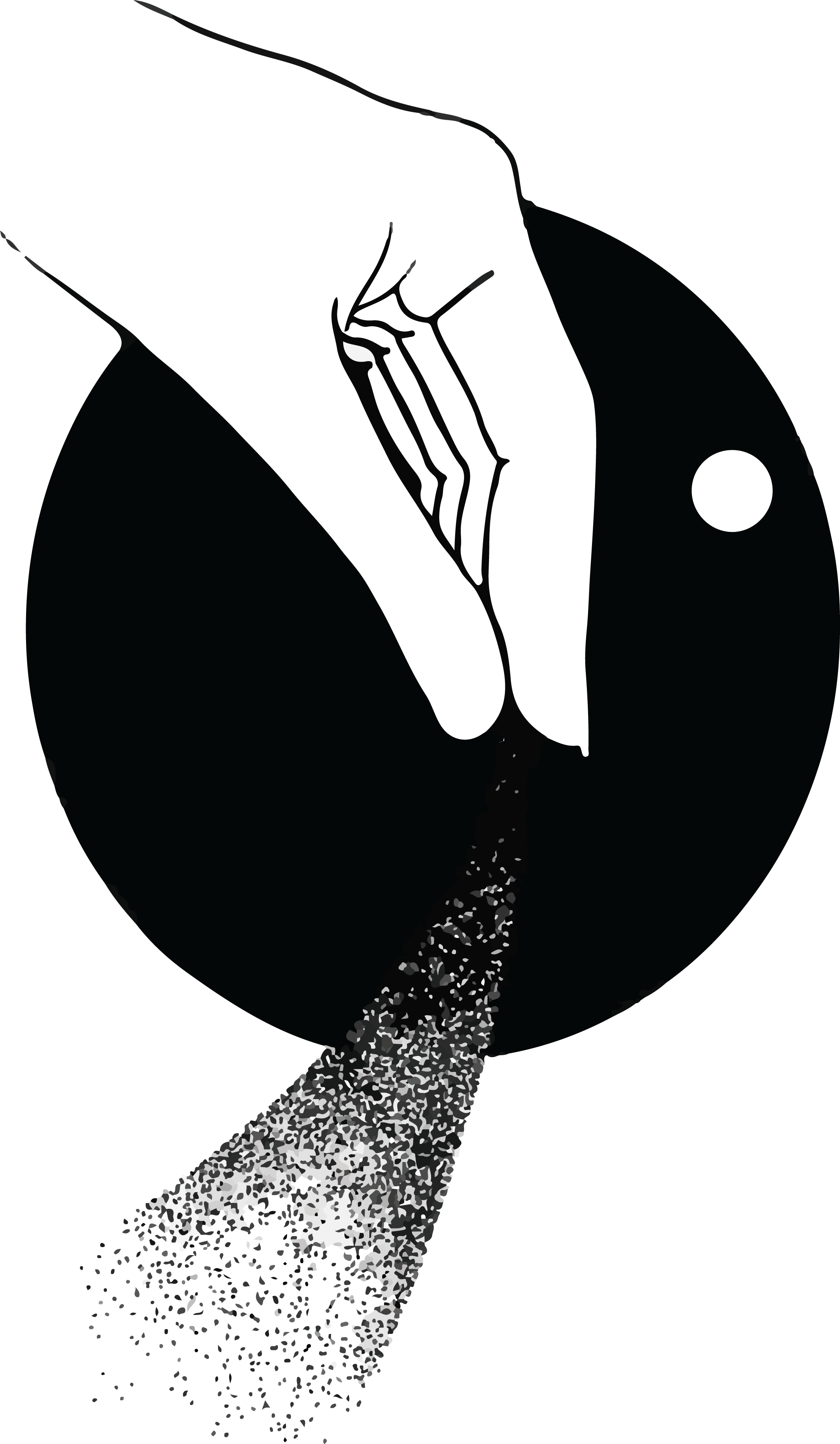


All physical media comes with a digital download card.
Nick Zanca Hindsight
On Hindsight, Nick Zanca’s first album as a singer-songwriter, Zanca leads a crack band of musicians from all over New York’s musical map. After nearly a decade making electronic music under the name Mister Lies, Zanca began focusing his energies as a producer, working with adventurous up-and-coming artists such as Wendy Eisenberg and Lucy Liyou and sculpting songs of his own. Hindsight moves boldly beyond the synthetic textures of his early career, blending AOR, jazz fusion, electroacoustic improv, and even musical theater into wholly organic music. He examines age-old quandaries from his own unique viewpoint: the dehumanizing effects of industry and capitalism, a childhood developmental diagnosis, a difficult romantic situation. It’s unapologetically itself, honest – and relatable. It doesn’t equivocate: Zanca’s world is ours, too.
Opening track “Not An Artist (BGM)” is a microcosm of the album – and an immediate hit. The lyrics unpack the absurdity of making art within technocapitalism, using the music industry as a case study. Zanca responds with an anthem mixing high-definition production with a melody that could have come out of the Great American Songbook. “I am not an artist anymore,” he sings on the chorus. “This song belongs to you now, my darling predator.” All together now! It also introduces the listener to most of Hindsight’s virtuosic cast: Lexi Bodick on bass, Sarah Galdes on drums, Mari Maurice on strings and pedal steel, Steven Rogers on guitar and electronics, and Zanca on keys and voice. (Ben Chapoteau-Katz, Wendy Eisenberg, and Nadia Hulett appear on later tracks.)
“Little Professor” is equally heart-on-sleeve, detailing early experiences with neurodivergence in 7/4 time. From the outset, groovy Wurlitzer and percussion buttress Zanca’s steady, smooth baritone; eventually the music explodes into a raucous, kaleidoscopic guitar solo. The lyrics eschew tragedy and victimization, though, highlighting the transformation of neurodivergence from a handicap to a superpower. “As someone who received an Asperger’s syndrome diagnosis as a child at the turn of the millennium, I witnessed firsthand the haphazard cultural stance, crooked pedagogy, and alienating language that was used to engage with children on the spectrum,” Zanca says. “This song is not only an attempt to offer up a more constructive alternative to how all that could have looked, but a middle-finger refutation of those attitudes that could allow a kid to see anything for themself other than their full potential.”
The many shades of interpersonal existence loom large on Hindsight. “You Two” muses on the intricacy of opening up a monogamous long-term relationship: “Caught you crushing hard; it was obvious to me…we’ll find solace in someone else’s skin.” You can hear the conversation unfold: the trust, the fears, the hope, the decision to try. “Softshoe,” which ruminates on ensuring multiple persons in a collaborative artistic project stay invested and interested, is equally poppy and touching. Over saxophone, wisps of guitar, and drums redolent of Brian Blade, Zanca sings, “All that I ask is that you provide an echo when I decide to let go.” This tenderness extends into album closer “The Party Stops (WIP),” which contemplates a generation of lost artists, their ghosts, and the implications of their posthumous praise. “How I wish that you could still be here,” Zanca sings, “if only to witness how you've been revered. What is sacrificed becomes the song.” What’s the point? How does one cope?
Hindsight may not have all the answers, but it lives the questions unabashedly. Zanca’s songwriting, lush arrangements, and tight supporting cast give Hindsight a filmic quality, viewing timely topics (neurodiversity, nonmonogamy, and the intersections of technology, capitalism and creative industries) through his distinctive lens. “This is the record I have been waiting to make ever since I started making them,” he says. The results are the fullest realization yet of his craft.
~
Nick Zanca and I have known each other since we were in our early teens and have always been exactly who we are: high-literary goofballs with very particular, somewhat frantic energies, deep freaks who care about Different Music, laughers mid-cry. In the Great Hall that preserves all “Types of People,” we do not find ourselves easily represented. Our particularities, which are our beauty, have us engage in any close representation of our type with the small, sharp knife of the skeptic. Our particulars, ourselves, desire preservation. We are lucky we found each other.
One night recently, Nick was in the cosmic studio of the mind, reviewing the job description for a songwriter/producer. He noticed something new on that docket – right under “professional looker,” there sat a fine-print requirement: night steward of People Hall, preserver and expander of the capacities of all types, emissary and docent of and beyond all those “Types of People.” Those chuckling gods who make some people crazy enough to become both songwriter and producer require us to expose the virtues of other people. We have to make the specificities of our collaborators and our subjects reverberate, as in a cavernous pantheon with light, reflective walls. It was no longer enough to have perfect ears and lots of technical fluency: Nick, it was decreed, needed to set himself within the Hall as subject and background alike.
Stewarding People Hall is an archival project. It is concerned with the timing of things. I recorded my contribution to Hindsight with Nick on Long Island, playing my archtop in homage to Derek Bailey’s contributions to the timeless David Sylvian record Blemish, a record Nick showed me, that became an aesthetic lodestar for me. Playing referentially in a way called “non-idiomatically”, for a day-one, while thinking of an older record, the wood-paneled hall of reference sang back to us, which is to say, I felt time. That is the other joint responsibility for songwriter and producer alike. To feel time.
Nick tells me that he considers this record as a "producer's songwriter album" in the tradition of Jim O'Rourke, Todd Rundgren, Jon Brion. Hindsight, he said to me, is “something that explores what occurs when turning inward after an extended period of collaboration.” Yes, that is a fantastic alternate or extrapolative definition of that word, but this is not an inward album: it’s an album that calls its listener “my love,” that often beseeches a “we.” It’s an album where the singer sings, “let me be there for you.” The harmony extends a comforting hand, surprising where it grazes. The rhythm shifts, falling asymmetric around the lyrics in a manner recalling Nick’s spiritual forebear, Stephen Sondheim. The orchestration sounds like it is reaching out, too - densely, lightly, Nick’s close friends populate the record, bringing the reality of the past few years of his life into sharp relief. He brings us in, though the specifics of his world could only be his. We see him clearly. It could come from nobody else.
Wendy Eisenberg
April 2024
releases August 2, 2024
Performed by:
Lexi Bodick (electric bass).
Ben Chapoteau-Katz (tenor saxophone, synthesizer).
Wendy Eisenberg (archtop guitar).
Sarah Galdes (drums, percussion, drum machines).
Nadia Hulett (voice).
Mari Maurice (pedal steel, violin, viola, electronics).
Steven Rogers (electric guitar, synthesizers, electronics).
Nick Zanca (voice, acoustic guitar, piano, everything else).
Recorded at
Figure 8, Brooklyn
Synthia, Manhattan
Elgin Park, Los Angeles
49 Shade, Brooklyn
Lake Rescue, Vermont
between 2020 and 2023.
Produced by Nick Zanca.
Mixed by Alex Thompson at Elgin Park, Los Angeles.
Mastered by Simon Lancelot at Studios Ferber, Paris.
Photography and packaging by Jordan Reyes at La Frette, Paris.
Engineered by Michael Coleman, Sarah Galdes, and Alex Thompson.
"Debt We Pay" and "Hindsight" were written with Steven Rogers.

